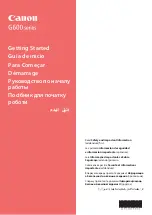
Baud Rate
The baud rate is the rate (in bits per second) at which the interface
transfers data. This parameters are 300, 600, 1200, 2400, 4800, 9600,
or 19,200 bits per second. The default setting is 9600.
Note: Data transferred over a serial interface consists of either 7- or
8-bit data bytes, each of which is accompanied by a start bit, a stop
bit, and a parity bit. The values chosen for the data bits and parity
parameters depend upon the requirements of the host. (See Chapters
3 and 10.)
Data Bits
The data bits parameter specifies whether the printer is to print 7- or
8-bit character codes. The default setting is 8. (Refer to Chapters 3
and 10 for information about 7- and 8-bit data.)
Parity
Parity checking (often called simply parity) is a method of verifying
that data is not changed in the transfer process. This parameters are
None, Odd, Even, Mark, or Space, depending upon the requirements
and capabilities of your computer. The default setting is NONE. If
the parity bit is selected, it is in addition to the 7 or 8 data bits.
Flow Control
To ensure the orderly flow of data between the host and printer, the
host computer establishes a set of rules commonly known as the
ready/busy protocol. This protocol allows the printer to notify the
host that it is either ready to receive data or that it is busy and cannot
receive data. The following paragraphs describe the flow-control
parameters.
Printer Setup 2-11
Summary of Contents for 8900 Series
Page 38: ...Character Sets and Global Commands 3 7 IBM PC1 Character Set Right Half ...
Page 40: ...Character Sets and Global Commands 3 9 IBM PC2 Character Set Right Half ...
Page 42: ...Nordic PC Character Set Right Half Character Sets and Global Commands 3 11 ...
Page 44: ...ISO 8859 1 Multinational Character Set Right Half Character Sets and Global Commands 3 13 ...
Page 46: ...Character Sets and Global Commands 3 15 IBM Multinational Character Set Right Half ...
















































